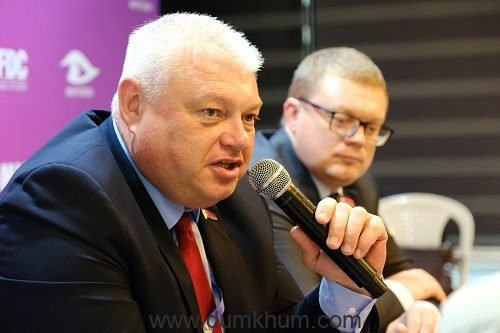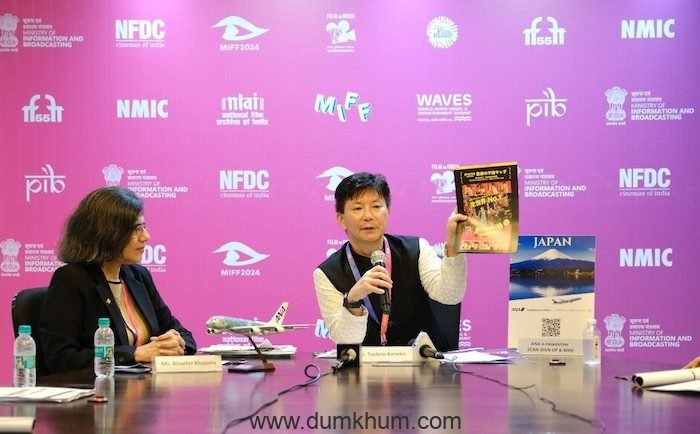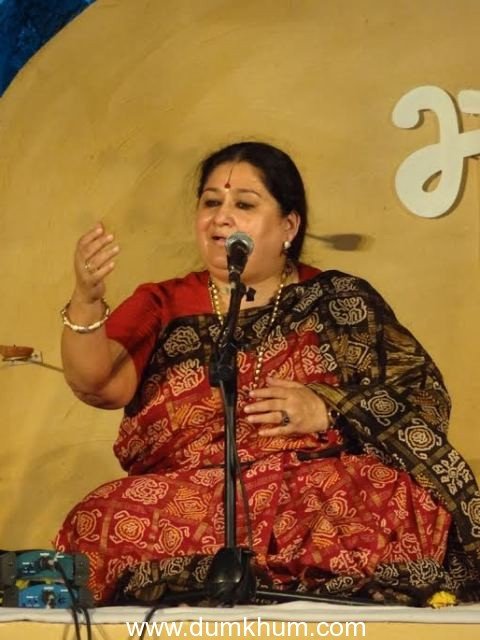A Devotional Treat: Bhakti Sangeet Festival Comes to an End
Three-day Festival was presented by Sahitya Kala Parishad and Department of Art and Culture, Government of NCT
Hon’ble Deputy Chief Minister of Delhi, Shri Manish Sisiodia inaugurated the festival while Shri Jitender Singh Tomar, Hon’ble Minister for law & Justice, home, tourism & Art & Culture, Govt. of Delhi presided over as the Chief Guest at Nehru Park, Chanakya Puri
Hon’ble Deputy Chief Minister of Delhi, Shri Manish Sisiodia inaugurated the festival while Shri Jitender Singh Tomar, Hon’ble Minister for law & Justice, home, tourism & Art & Culture, Govt. of Delhi presided over as the Chief Guest at Nehru Park, Chanakya Puri
Delhi’s much-loved annual Bhakti Sangeet festival is presented by Sahitya Kala Parishad and Department of Art, Culture & Languages, Govt of Delhi. This year it had nine individual and group performances of Bhakti and Sufiana renditions over three days at Nehru Park, Chanakyapuri.
No matter what language we speak or which culture we adhere to, there are certain elements of human consciousness that transcend all tangible differences. Devotion to the Ultimate Being is one of those universal sentiments that find expressions in multiple forms. Be it in the form of bhajans or qawwalis or Gospel music, devotional music is one form of expression that does not fail to strike the chords of believers.
Over three days popular singers such as Anup Jalota and Shubha Mudgal performed different devotional strains of music.
“Every individual soul finds its own way to connect with the eternal reality. Some perceive the Creator as a formless transcendent reality; others conceptualize Him in a human form. In different cultures and languages, people develop and nurture their own devotional traditions. Each region borrows from the saints that roamed in their lands. Music is a form that resonates with people across the world by aligning the mystic frequencies of a mind to verbal expression of love,” says Ms. Shubha Mudgal.
From devotional traditions of South India to Meera bhajans, to ‘Nirgun’ bhakti and kalams of Bulleshah, the three-day festival showcased the variety of devotional music of India.
Other singers who performed at the festival were Meeta Pandit who introduced the Delhi audience to the beautiful devotional traditions of South India; Iqbal Ahmad Khan who sang Meera bhajans; the adorable Nooran sisters who rendered the kalams of Bulleshah, and Dhruv Sangari who also performed Sufiana kalams.
The annual Bhakti Sangeet Festival serves the purpose of unifying and bringing together the multiple traditions of Indian devotional music at one stage.
“We are a country known globally for its spirituality and we have multifarious ways of professing our love to God. The Bhakti Sangeet festival is a unique platform that brings together people from different genres of music and unites them by their love for the devotional music,” says Shri Anup Jalota, who performed on the first day of the festival.
About Sahitya Kala Parishad
Sahitya Kala Parishad, the cultural wing of the Government of NCT of Delhi was setup in 1968 for the promotion and propagation of Art and Culture in Delhi. Hon’ble Chief Minister of Govt. of NCT of Delhi is the Chairperson of the Sahitya Kala Parishad. As one of the most interactive department of the Delhi Government, Sahitya Kala Parishad for the past three decades and more has been carrying out its mandate with full vigor and dedication. The Parishad has, on one hand, revived and projected the age old, time tested traditions of the country and on the other hand, it has tried to encourage and provide platform to the new and innovative trends in plastic and performing arts which represent our lives and times. Parishad’s programmes are, at the same time, deep rooted in traditions and also branching out towards open skies crossing the boundaries of caste, creed, color and geographic limits. Its projects and programmes concentrate more on youth, women and weaker sections of society.
















